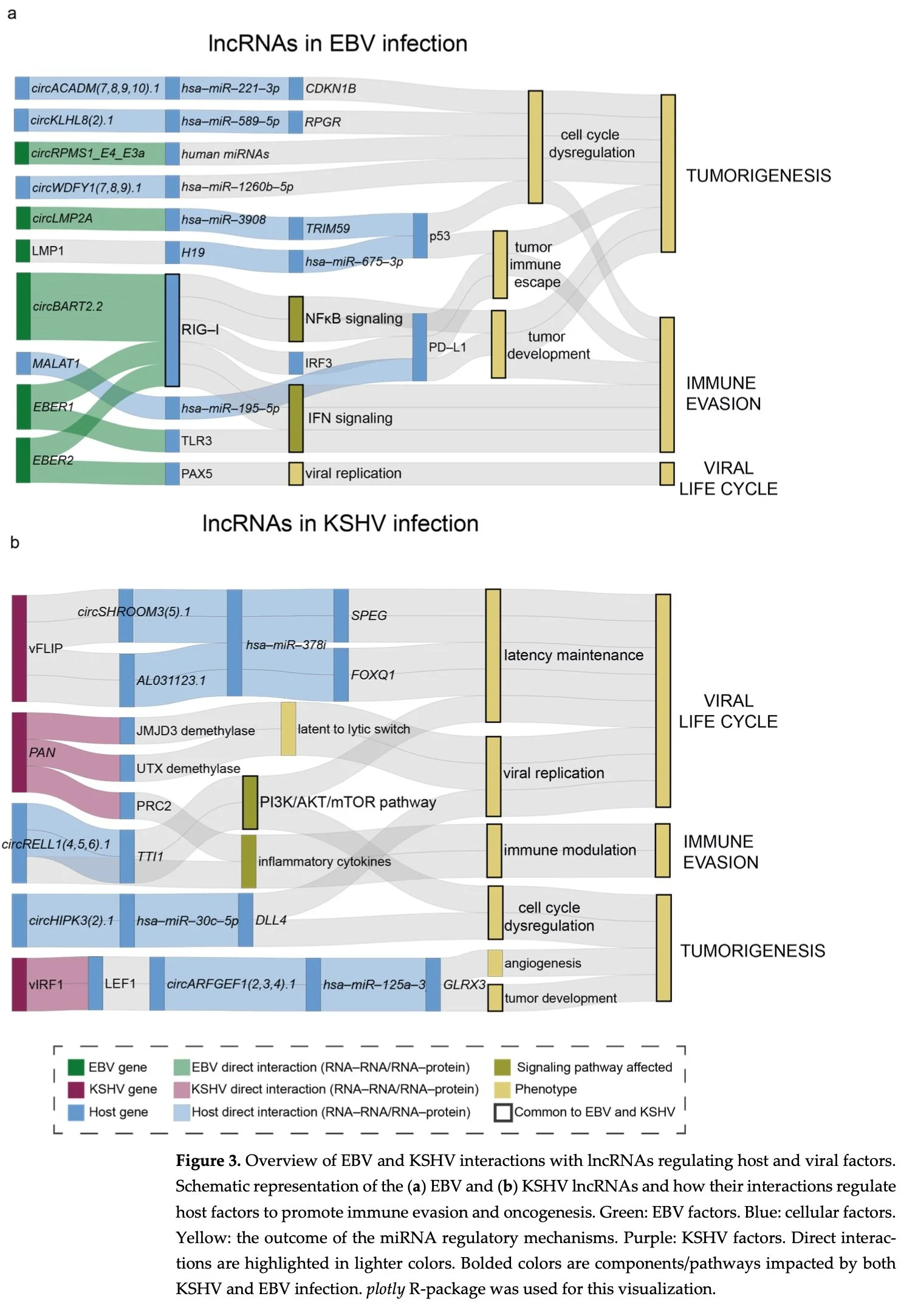Non-Coding RNAs and Immune Evasion in Human Gamma-Herpesviruses
by Tablow S. Media, Laura Cano-Aroca and Takanobu Tagawa
Viruses 2025, 17(7), 1006; https://doi.org/10.3390/v17071006
Abstract
Herpesviruses are DNA viruses that evade the immune response and persist as lifelong infections. Human gamma-herpesviruses Epstein–Barr virus (EBV) and Kaposi’s sarcoma herpesvirus (KSHV) are oncogenic; they can lead to cancer. Oncogenic viruses are responsible for 10–15% of human cancer development, which can have poor prognoses. Non-coding RNAs (ncRNAs) are RNAs that regulate gene expression without encoding proteins, and are being studied for their roles in viral immune evasion, infection, and oncogenesis. ncRNAs are classified by their size, and include long non-coding RNAs, microRNAs, and circular RNAs. EBV and KSHV manipulate host ncRNAs, and encode their own ncRNAs, regulating host processes and immune responses. Viral ncRNAs regulate host functions by post-transcriptionally modifying host RNAs, and by serving as mimics of other host RNAs, promoting immune evasion. ncRNAs in gamma-herpesvirus infection are also important for tumorigenesis, as dampening immune responses via ncRNAs can upregulate pro-tumorigenic pathways. Emerging topics such as RNA modifications, target-directed miRNA degradation, competing endogenous RNA networks, and lncRNA/circRNA–miRNA interactions provide new insights into ncRNA functions. This review compares ncRNAs and the mechanisms of viral immune evasion in EBV and KSHV, while also expanding on recent developments in the roles of ncRNAs in immune evasion, viral infection, and oncogenesis.

